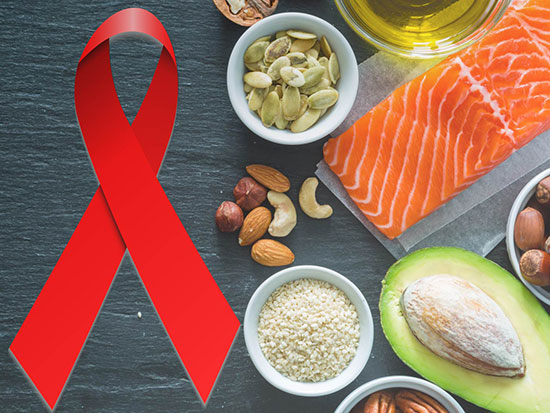 A new collaboration between the University of Alabama at Birmingham 1917 Clinic and Birmingham AIDS Outreach will expand the BAO nutrition services program to improve the health of patients living with HIV. The BAO Food and Education Delivery program, or B-FED, is a new food security and nutrition initiative to decrease the rate of chronic disease in people living with HIV, who have a higher risk of food insecurity, obesity, diabetes and heart disease than the general population.
A new collaboration between the University of Alabama at Birmingham 1917 Clinic and Birmingham AIDS Outreach will expand the BAO nutrition services program to improve the health of patients living with HIV. The BAO Food and Education Delivery program, or B-FED, is a new food security and nutrition initiative to decrease the rate of chronic disease in people living with HIV, who have a higher risk of food insecurity, obesity, diabetes and heart disease than the general population.
Anastasia Ferrell, BAO director of Nutritional Programs, and Joshua Glenn, nutrition program case manager, will work with UAB 1917 Clinic dietitians and social workers to increase the amount and quality of nutritious food available to clients. They will monitor client health status in real time, including food security, diabetes risk and heart disease risk.
“This is one of the first clinic/nonprofit partnerships in nutrition service delivery for people living with HIV,” said Mandy Willig, Ph.D., R.D., assistant professor in the UAB Division of Infectious Diseases. “Poor nutrition has an even bigger impact on health when you have HIV. Many food pantries provide food that is calorically dense but poor in nutrition, which ends up increasing a person’s risk for chronic diseases.”
BAO has long worked to provide the best nutrition possible to clients with HIV. With B-FED, BAO and the UAB 1917 Clinic hope to see improved blood pressure and blood sugar levels, decreased heart disease risk, and better food security and quality of life for participating clients.
“BAO strives to provide innovative and collaborative programs that meet the needs of the HIV-positive community,” said Karen Musgrove, executive director of BAO. “BAO and UAB create the perfect partnership tapping into our strengths of community collaborations, research, providing excellent medical and social service care, and education for our community.”
B-FED will provide improved nutrition and tailored educational content to those living with HIV. Professionals with experience in nutrition, culinary arts and social work will work with clients to provide nutritional supplements, quality foods, and nutrition/culinary education, all tailored to the individual’s need and preferences.